How to Write an Effective Welcome Email (and 12 Examples That Get It Right)

Dollar for dollar, email marketing is one of the most effective channels at your disposal for making sales and generating repeat customers. Email is the backbone of customer retention, and a highly effective channel for connecting with your customers even after they’ve left your website.
A welcome email is one of the more important types of emails you'll send to new subscribers. Welcome emails are what you receive when you submit your email address to an online store—you’ve likely seen them in your inbox after creating an account or joining a newsletter.
We've put together essential advice on how to write a welcome email, including twelve stand out examples and six apps you can use to make your emails even more engaging.
- What is a welcome email?
- 12 excellent examples of welcome emails
- Structuring your first email
- 6 apps for sending better emails
- Lay out the welcome mat for customers
What is a welcome email?
A welcome email, often part of a series of onboarding emails, is the very first email communication you have with a shopper or current customer. This communication could be a subscription confirmation or, in some cases, a post-purchase email. Unlike a standard business email format, this is sent to people who have chosen to engage with your brand.
The welcome email you send sets the foundation for the rest of your communications with a new customer. Depending on the action—such as making a purchase, or joining your company newsletter—your welcome message is the one broadcast everyone will see, which means the impression it leaves will compound over time.
12 of the best welcome email examples
We’ve collected 12 examples of great welcome emails from companies both large and small. Our suggestion: Make note of what you like and what you're not a fan of in order to inform your own broadcasts.
- Huckberry
- Ann Taylor
- Ralph Lauren
- ModCloth
- IKEA
- Flower Fix
- Find Me A Gift
- Allbirds
- MVMT
- mahabis
- Away
- Lush
1. Huckberry
Huckberry stands out for two reasons: It’s an incredibly well-designed store, and it devotes enormous attention to email marketing. Email is Huckberry’s primary channel for letting people know about its exclusive goods.
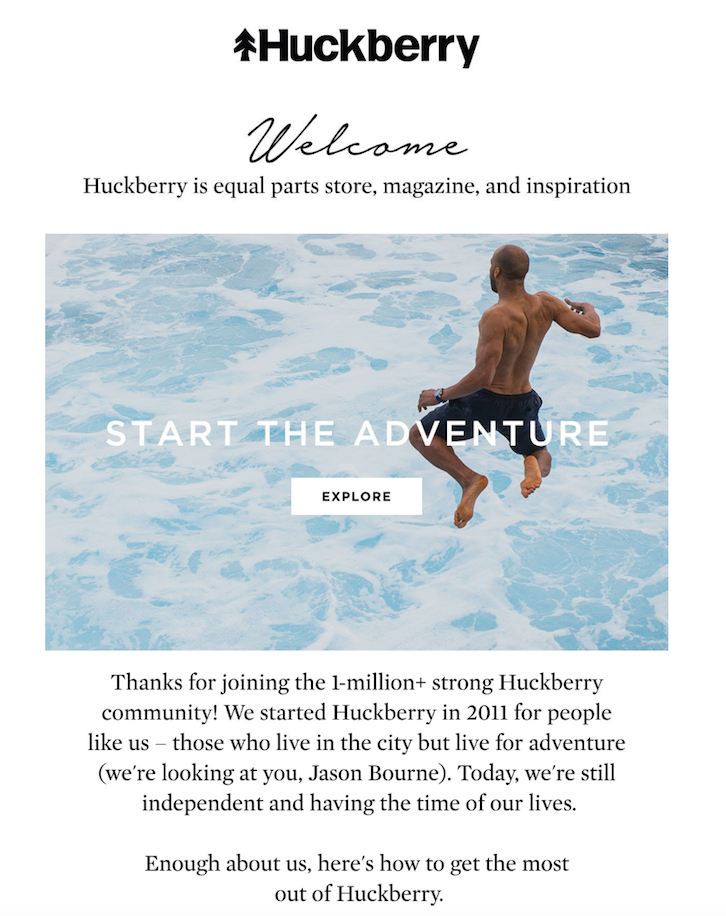
In Huckberry’s welcome email, they share information about the community new users have just become a part of, a mix of product promotions, and interesting email content.
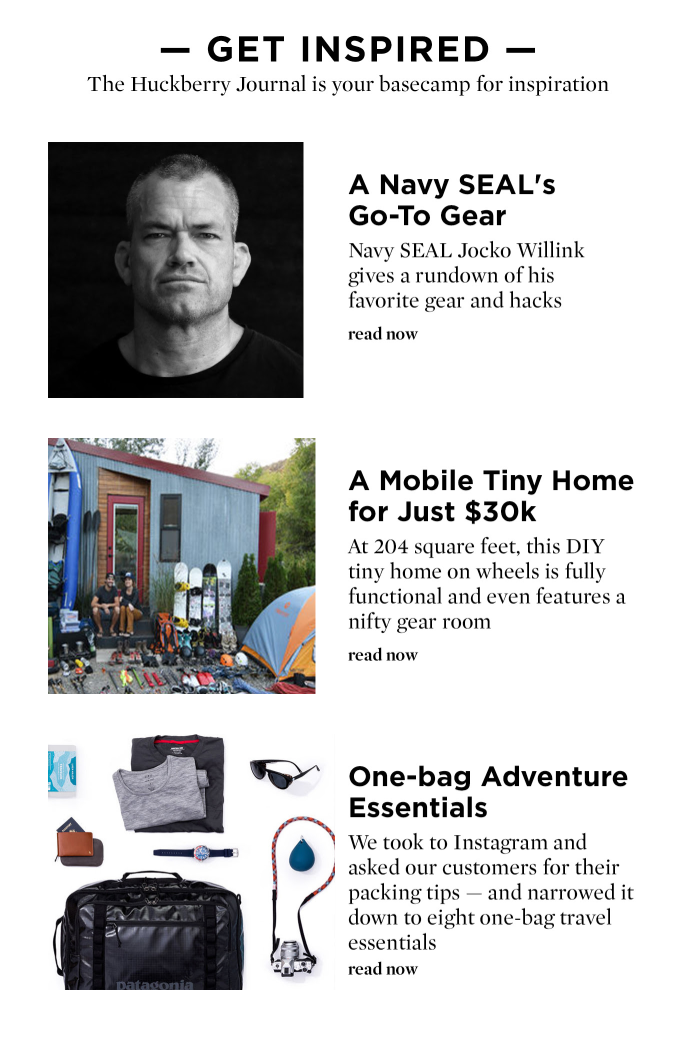
2. Ann Taylor
There are a number of elements worth noting in Ann Taylor’s welcome email. The email subject line, “An Exclusive Welcome Gift Just For You” conveys a message that you’re special enough to make “The List.” A $25-off coupon on your next purchase gives extra motivation to buy.
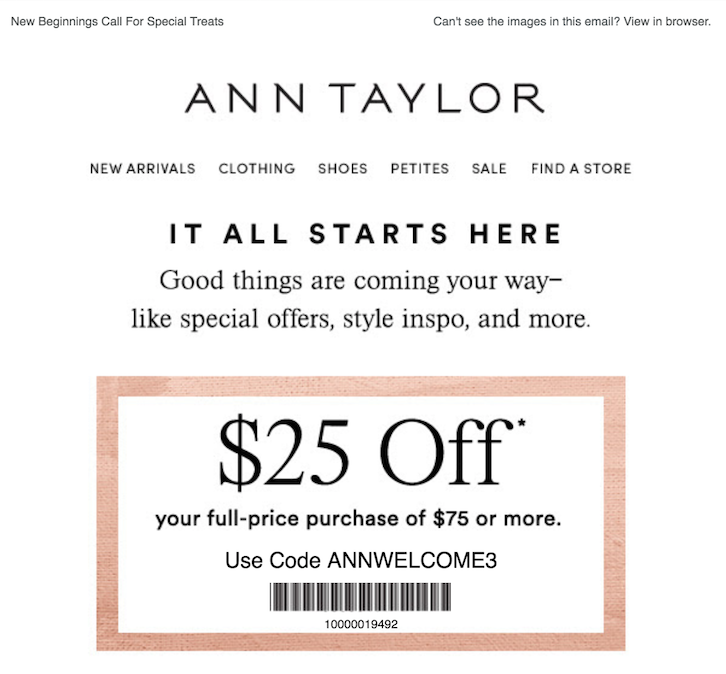
3. Ralph Lauren

Ralph Lauren, a luxury fashion brand, uses specific messaging to subtly reward subscribers for signing up: “You’re now on the list” and “exclusive offers” both appeal to their audience. The email from Ralph Lauren also offers a special deal: 10% off your next order.
4. ModCloth
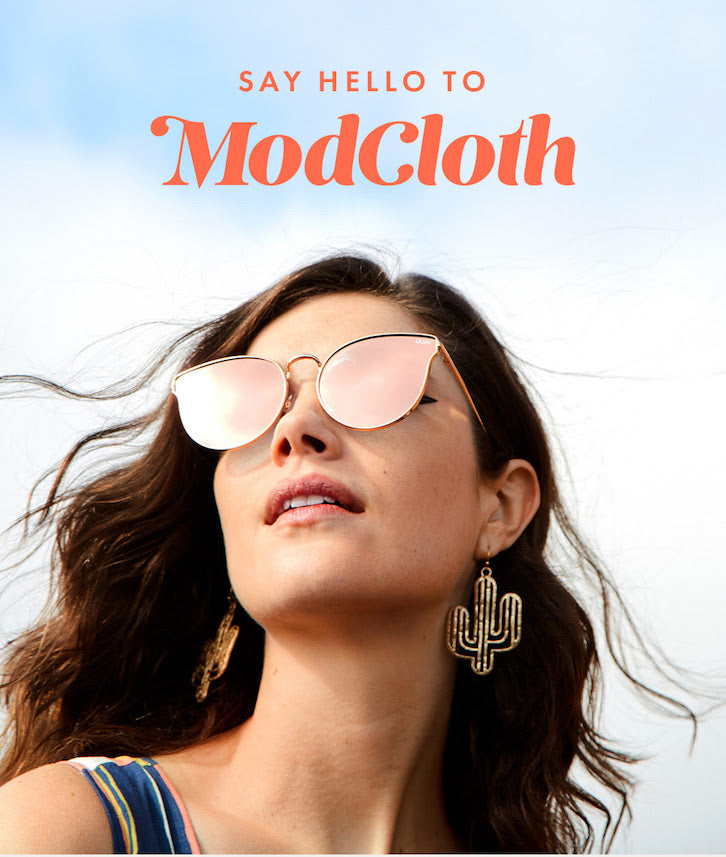
ModCloth uses its welcome email to introduce itself, the benefits of shopping with them, and to provide a promo code. Note how ModCloth lists their competitive advantages, reducing risk for the buyer: “Complimentary style & fit consultations with ModStylists” and “Free shipping & returns.” You’ll also notice the “for women by women” language that appeals to a specific audience.
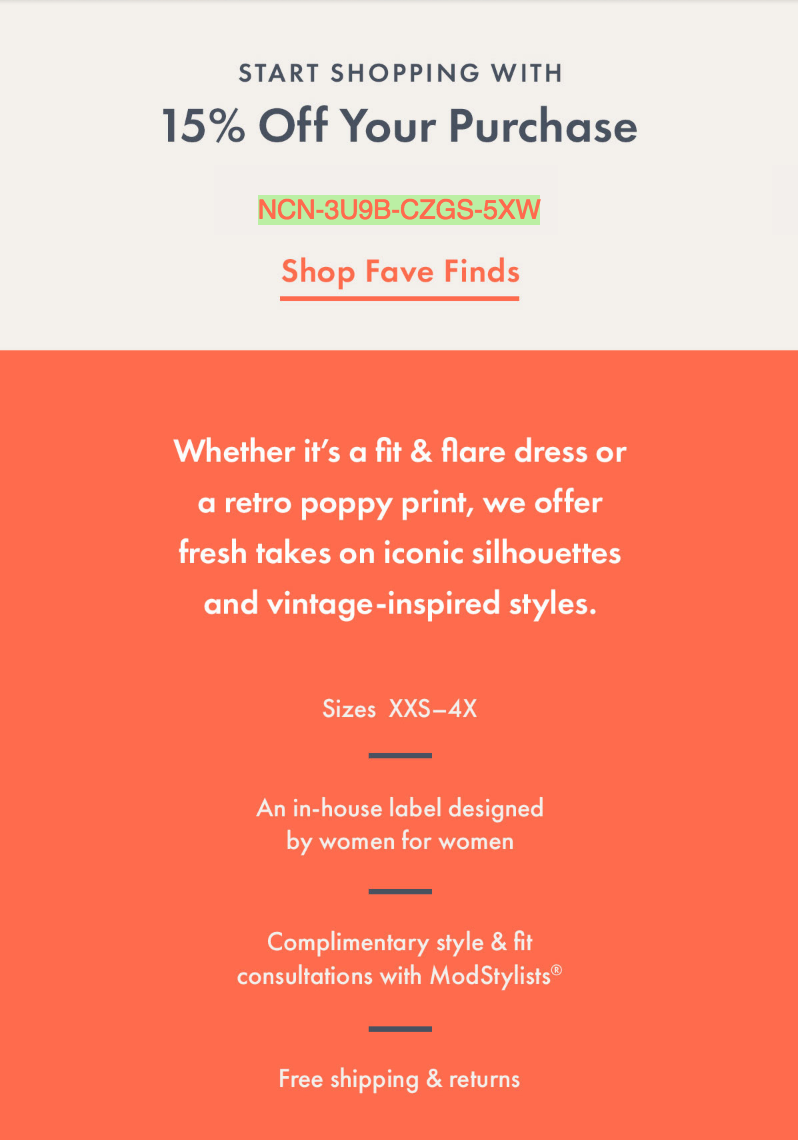
5. IKEA
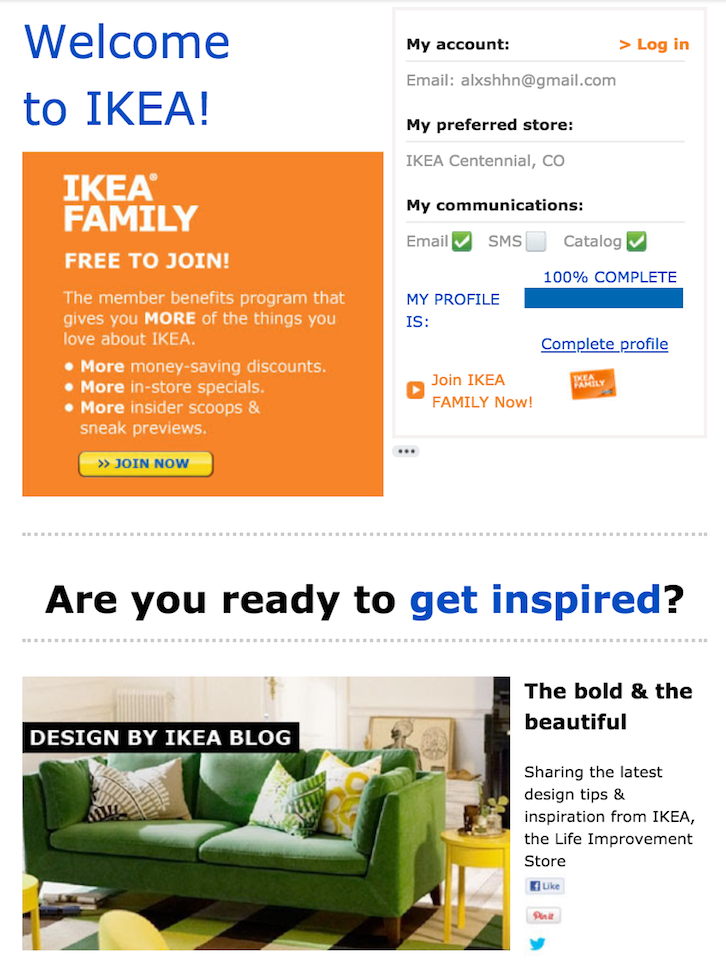
IKEA’s welcome email shares recent blog posts, new items on its catalogue, and, perhaps most interestingly, the stores closest to the zip code I entered at signup. IKEA isn’t exactly as common as Dunkin’ Donuts, so it’s helpful to know where the closest store is. Note also the big orange box asking you to join IKEA as a member.
6. Flower Fix
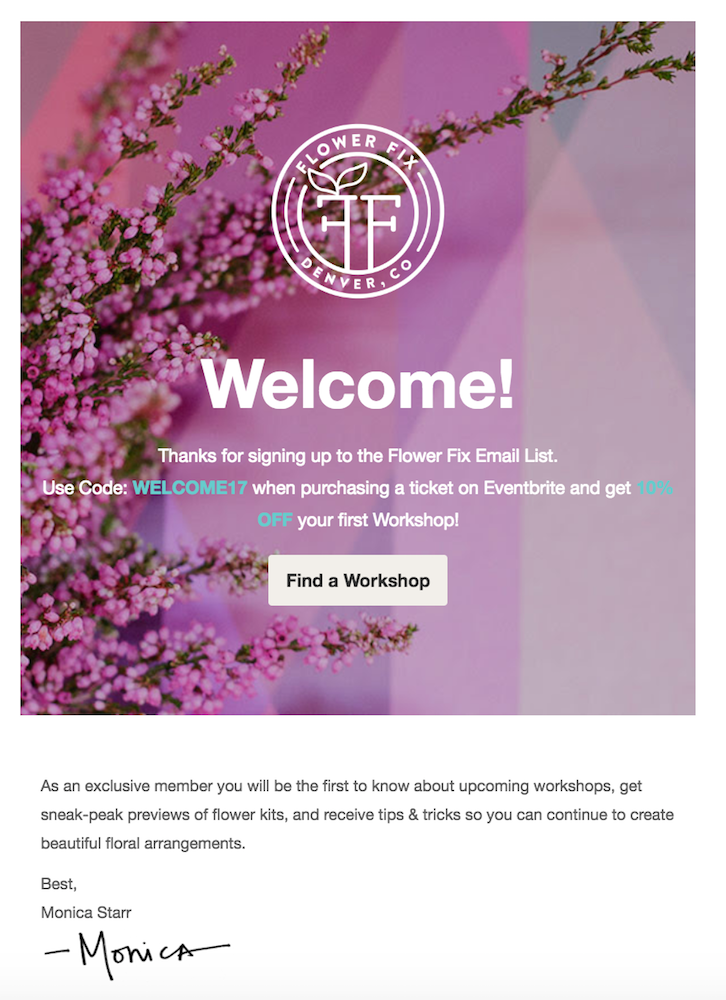
Flower Fix takes a personal approach, the email coming directly from Monica Starr and featuring her signature. The brand also rewards email subscribers with a 10%-off coupon code for in-store workshops, bridging the gap between the ecommerce and brick-and-mortar sides of the business.
7. Find Me A Gift
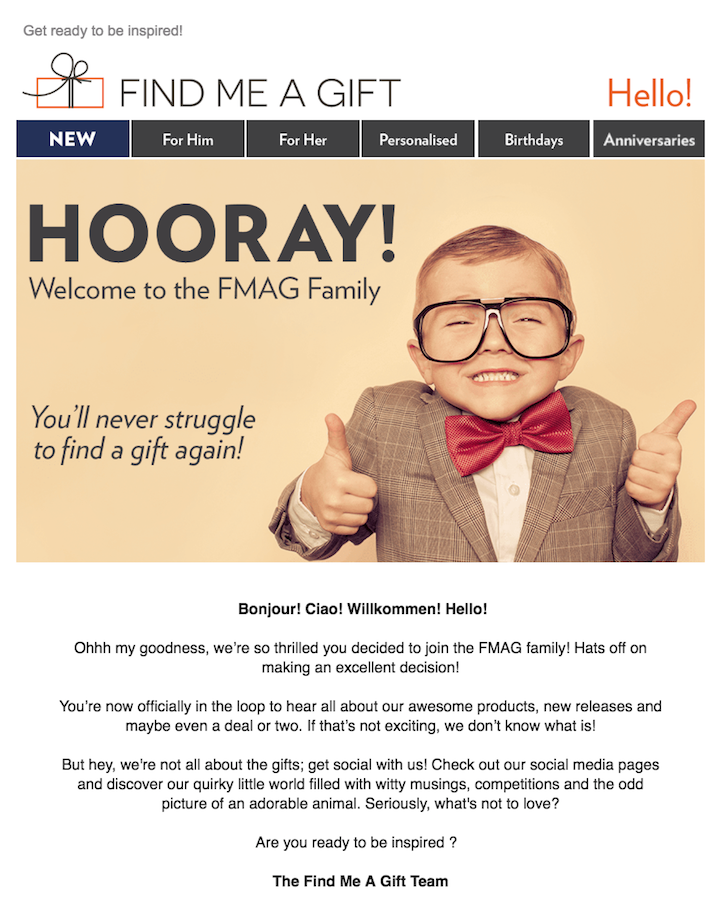
Find Me A Gift sends a welcome email with personality, featuring fun imagery, playful language, and a celebratory tone. It’s authentic to the brand identity but also reminds users of the utility the brand provides: “You’ll never struggle to find a gift again!”
8. Allbirds
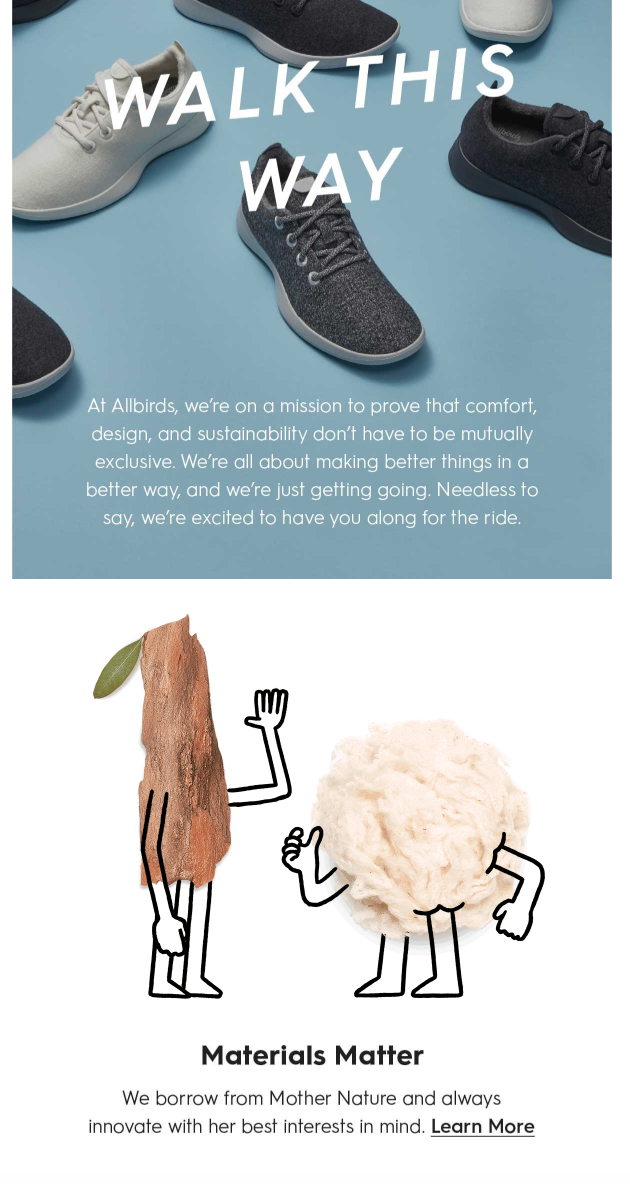
Allbirds is known for their distinctive brand identity and messaging, and their welcome email further supports these traits. Their subject line, “Welcome To The Flock,” the inclusion of animated GIFs, colorful language, and an authenticity to the brand all contribute to helping this welcome email stand out.
9. MVMT
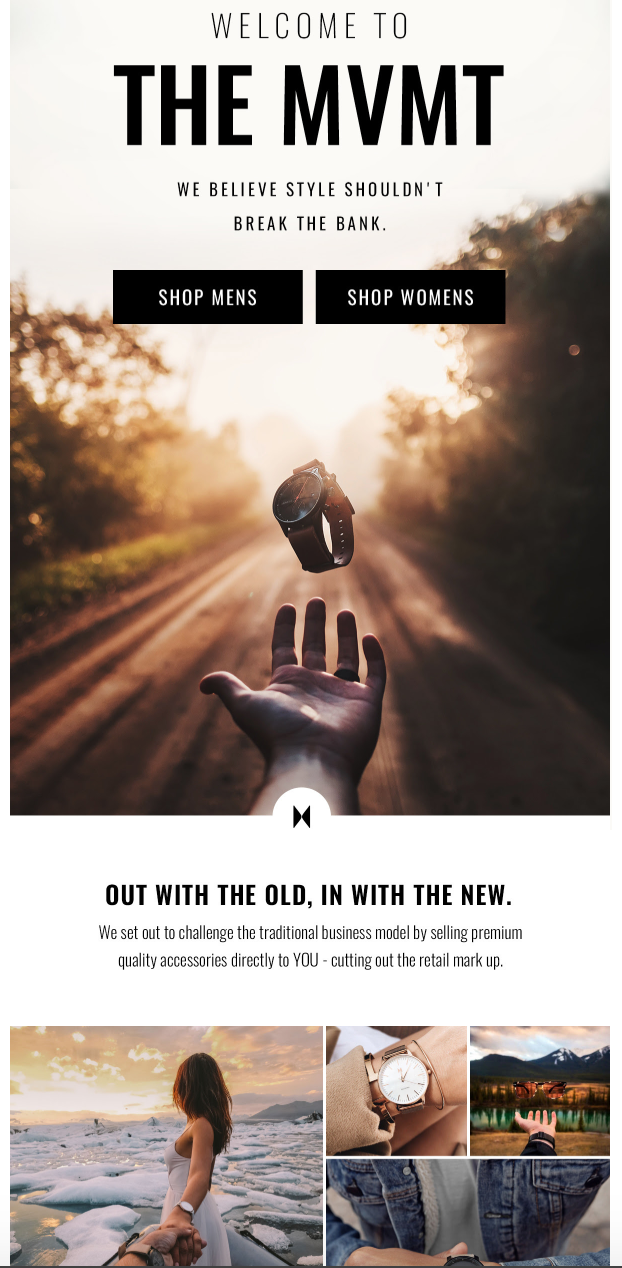
MVMT is more than just a watch brand, and they use the welcome email to encourage new signups to explore and engage with their community. High-quality photography exudes the luxuriousness of the brand and its products, while handpicked user-generated content introduces you to members of the community.
10. mahabis
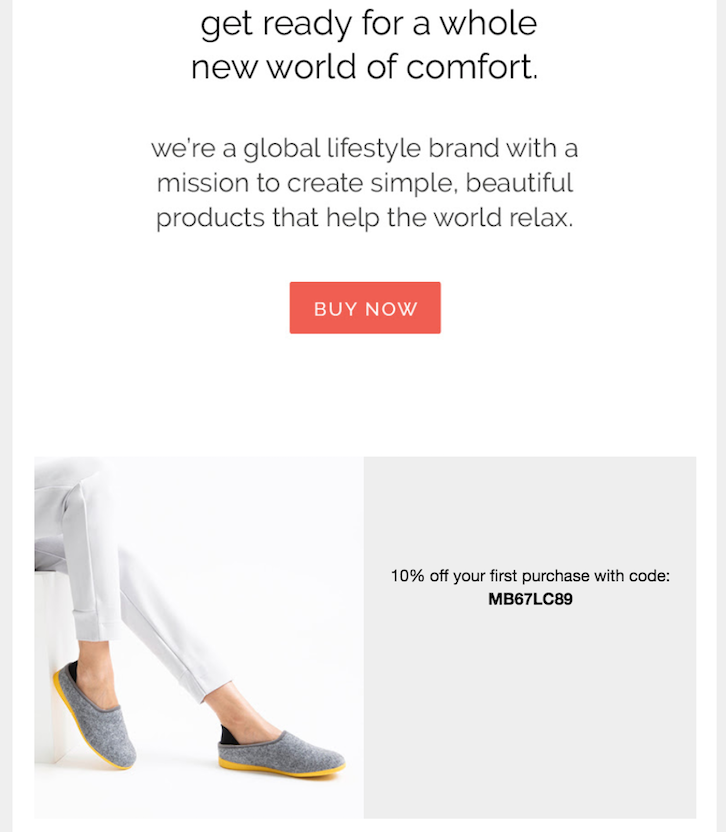
mahabis, which is “reinventing slippers,” uses their welcome email to introduce their products. After highlighting a few specific benefits, they share a promo code for 10% off your first purchase.
11. Away
Away has taken the travel industry by storm with their luggage. Though the brand may not need an introduction, they use their welcome email to describe their vision and share their passion for travel with subscribers.
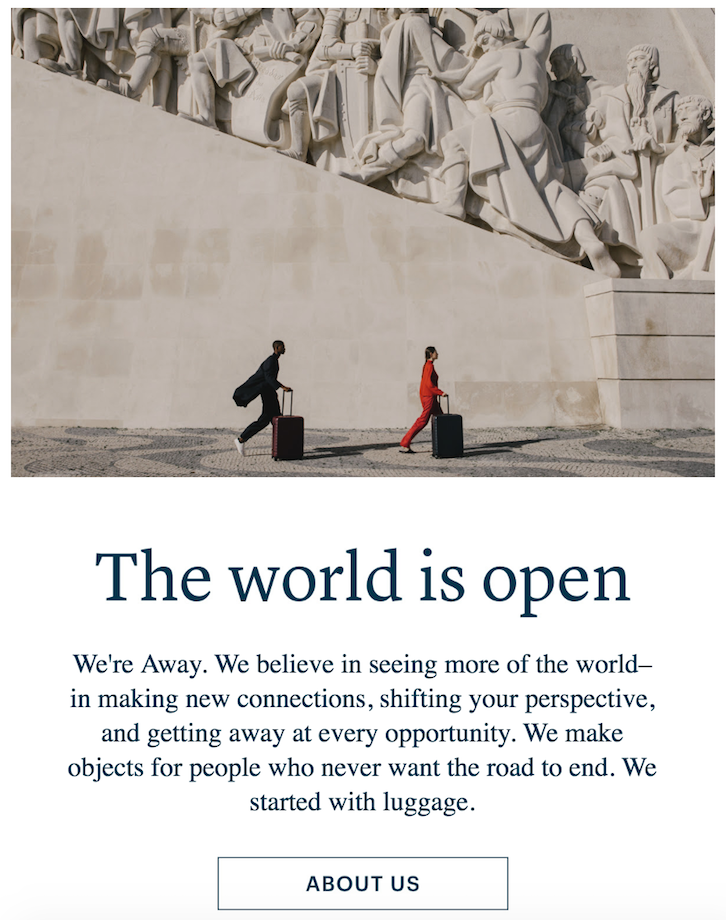
Then they introduce their products, which fit perfectly into that narrative:
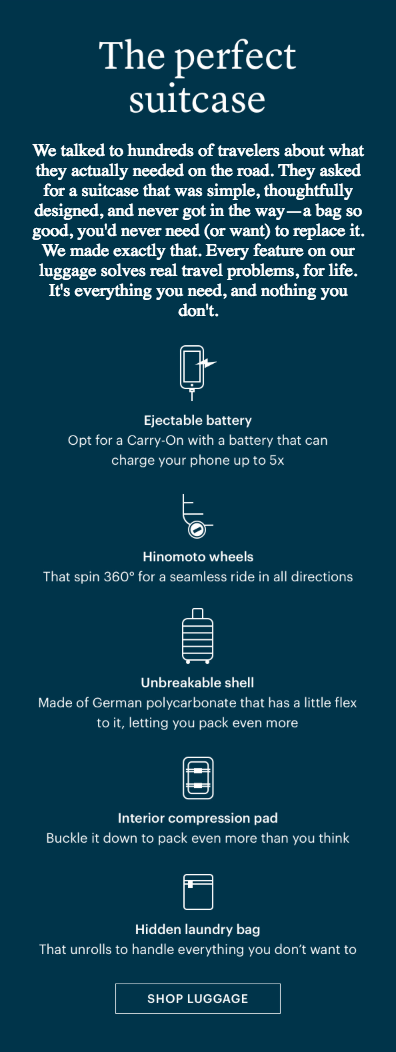
12. Lush
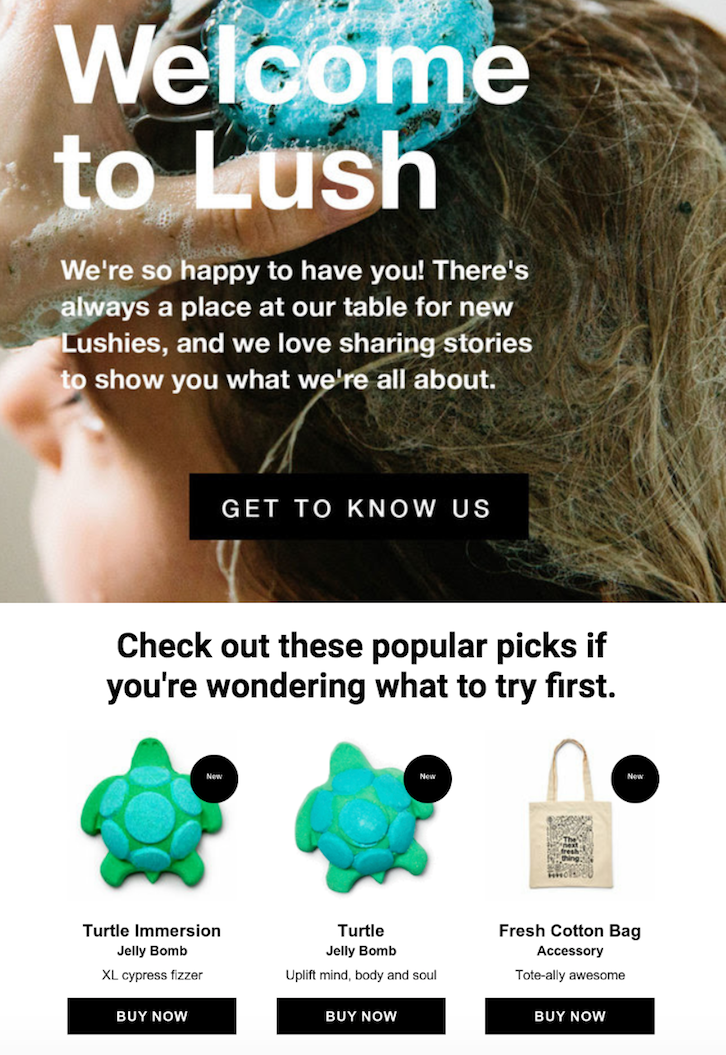
Lush takes the opportunity to showcase their products with high-quality imagery and product carousels. The subject line reads “You're part of the family now” with a heart emoji, which falls in line with Lush’s casual, friendly and approachable brand voice.
Writing welcome emails that work
According to data from Omnisend, welcome emails have an average open rate of 45%, versus an average open rate of 18% for promotional emails. In addition, though an email series may perform better than a single send, engagement drops off after the first email in the series.
When writing a welcome email, or the first emails in a welcome series, there are several key objectives to keep in mind:
- Showcase your value proposition upfront. You don’t want to inundate customers with promotional messages during your only window of opportunity to create a strong first impression And remember, you have to give before you can expect to receive. Discounts, tips and tricks, and other customer-focused broadcasts can provide value while still encouraging users to purchase down the line.
- Personalize your message. Today’s email marketing tools enable you to send more targeted messages than ever before. And it’s good practice: Yes Lifecycle Marketing found that emails with personalized subject lines have 50% higher open rates and 58% higher click-to-open rates.
- Send your welcome email within minutes. Let’s say you incentivize joining your newsletter with a promo code for 10% off the customer’s next purchase. If someone is ready to purchase now and they don’t receive that promo code, you risk losing out on the sale for good.
- Remind subscribers to remove you from filters Sometimes, email clients will default to sending marketing broadcasts to junk email folders. Encourager subscribers to whitelist your address so they don’t potentially miss out.
- Set transparent expectations. Let subscribers change preferences easily, inform them what and how frequently you’ll be emailing new content, and remind them of how they ended up on your list in the first place.
- Have a clear call-to-action (CTA). What do you want users to do with your welcome email? Do you want them to use the promo code for a purchase, or do you want them to head over to your About page to learn more? Whatever it is, make it easy to understand what the next step is, and avoid creating confusion with too many CTAs.
- Use high-quality, engaging imagery. Whether it’s product photography or custom illustration, the visuals in your welcome email should be striking.
- Remember mobile users. While creating a beautiful-looking welcome email is important, it also needs to be functional across devices. The 2017 Email Client Market Share by Litmus found that mobile accounts for the most (47%) email opens, compared to 36% on webmail and 17% on desktop.
- Pay attention to your subject line. You’ll see in some of the examples below that the standard “Your subscription has been confirmed” or “Welcome to our email list!” doesn’t always cut it. Not sure which subject line will work best? Try a few A/B tests to see which generates the highest open and click-through rates.
Structuring your first welcome email
The welcome emails above don’t have a great deal of text, do they? Hardly any of them have paragraphs; most of them are strong offers paired with great visuals.
You can put something together that’s compelling without as significant of a investment in email design, at least initially. Take a look first at some DIY photo-editing tools. Use photo-editing software like GIMP or Canva to write a big “Welcome” over one of your hero images and use that as a banner of your email. Or, use the collage tool of PicMonkey to put all of your products together in a collage.
You’ll also notice that these emails fit broadly into three themes:
- Telling the business’s story (and communicating the brand). It’s important to tell your story to humanize your brand and give shoppers a reason to rally behind your brand.
- Showcasing a store’s products. At the end of the day, the goal of every online store is to sell products. One way to do that is to highlight your most popular products. Remember, many subscribers will not be aware of your entire line of products.
- Making special offers to encourage a return visit. If you show users that you’ll provide value, they’ll be more likely to trust your brand and reciprocate.
Six welcome email apps
The Shopify App Store has all the apps you need to improve your store, and email marketing is one of the functionalities that are especially well-covered.
Here are six apps that will help you create automated emails to welcome someone when they sign up for your email list. Click through to the apps to understand how they work and how they can be integrated to your store.
The apps are easy to integrate into your store, and there’s a lot that you can do to send out great emails.
Lay out the welcome mat for customers
Since your welcome email is often the first time your brand enters a customer’s fiercely guarded inbox, you need to earn your place there and make the message count.
While a welcome email carries a lot of weight, it’s ultimately just the first interaction in a hopefully long and fruitful relationship. Set the tone, say something compelling, and give customers and subscribers a reason to come back. Then, get to work on consistently sending great newsletters, so subscribers know giving you a chance to reach their inbox was a good decision after all.